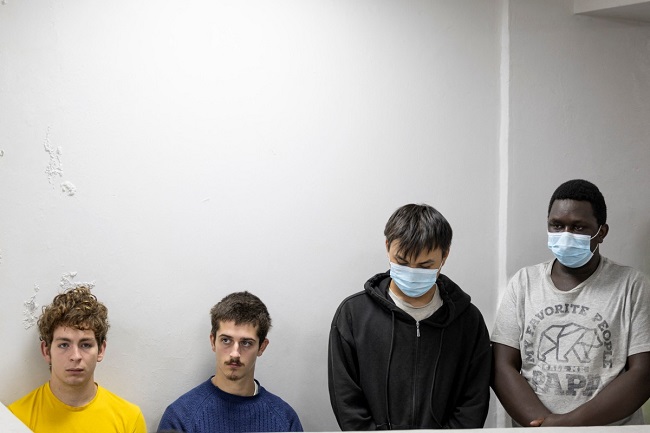
A Kenyan court fined four people, including two Belgian teenagers, each of whom were over $7,000, on Wednesday, May 6, in an attempt to smuggle thousands of live ants into the country, a case that has attracted widespread attention to biopirated.
The defendants – David Lornoy and Seppe Lodewijckx, both from Belgium, Duh Hung Nguyen of Vietnam and Dennis Nganga of Kenya, pleaded guilty to the charge of possessing ants, but denied any intent to traffic them.
The Belgian teenager was arrested in Nakuru County, with 5,000 queen ants packing 2,244 tubes. According to court documents, their co-defendants Duh and Nganga were found to be found, and the ants were stored in 140 syringes containing cotton thread and two containers. Kenya Wildlife Service (KWS) describes the incident as a biological piracy, alleging that the suspect plans to export ants to lucrative exotic pet markets in Europe and Asia.
During the sentencing, Senior Magistrate Judge njeri Thuku made a sharp comparison between illegal trade in wildlife and historical atrocities. “Imagine being removed violently from your home and packed into a container with many others like you. Then, imagine being isolated and squeezed into a small space where the only source of nutrition for the foreseeable future is glucose water.” “It almost sounds like a reference to the slave trade. However, it’s not the slave trade, but the illegal wildlife trade.”
The court noted that Lornoy was a “ant enthusiast” and a member of a Facebook group called “Ants and Ant Farming” who maintained the colony at home in Belgium. He told investigators that he did not know that transporting ants was targeted at Kenyan law. Among the captured specimens are the rare Meso Seotes species, and a queen’s ants are reportedly worth $99. The total value of the ant is 1 million Kenyan shillings, which is about US$7,740.
While wildlife without a permit in Kenya could result in up to $10,000 or at least five years of fines, the court ordered four people to fine shillings 1 million, or to jail for one year if they failed to do so. The magistrate said the Belgians did not fit into the typical poacher image, but criticized foreign countries for their broader model of African biodiversity. “The case reflects a script that has been played centuries ago … the resources that Africa owns are plundered by the West and now the East,” she said.
KW reiterated his position in a statement, calling the crime not only a wildlife crime, but also a biological piracy situation. It said the suspect intends to smuggle ants into high-value exotic pet markets where demand for rare insect species continues to rise.
